- Administrator
- Albums and Singles
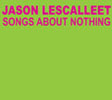 Lescalleet has been expertly mangling old and decrepit electronics for years, but the past few months have been especially productive with these two high profile releases and a recent tour. His work has consistently inhabited that gray world between noise and avant garde electronics, placed somewhere between harsh brutality and beard-stroking experimentalism. These new works, both solo and with Aaron Dilloway, continue this, making serious art with some occasionally not so serious undercurrents.
Lescalleet has been expertly mangling old and decrepit electronics for years, but the past few months have been especially productive with these two high profile releases and a recent tour. His work has consistently inhabited that gray world between noise and avant garde electronics, placed somewhere between harsh brutality and beard-stroking experimentalism. These new works, both solo and with Aaron Dilloway, continue this, making serious art with some occasionally not so serious undercurrents.
The double disc Songs About Nothing is clearly inspired by Big Black's notorious Songs About Fucking, from the title to the artwork, to even some of the track titles and samples used.Titles are not so subtle references to that classic album ("The Beauty of Independent Music", "Escargot", etc,), and he even works it in to some of the source material.The former begins with a microscopic opening sample of "The Power of Independent Trucking" before engaging in a pile of shrill feedback and ugly noise.The complicated drones and layers could actually be rather beautiful, if not so painfully skewed towards the higher end frequencies.
Even more overtly, "The Power of Pussy" takes the opening amp hum and feedback from "Kitty Empire" and stretches it out to infinity, eventually melding with another pastiche of unrecognizable music before opening the gates of Hell."The Loop" is just that:an erratic loop mixed with field recordings and mangled tape noise that is simultaneously subtle, creepy, and then humorous, with what sounds like a kid yelling "good evening, motherfucker!" from somewhere near by at the piece's end.
"Beauty is a Bowtie (HTDW)" mostly stays away from the world of noise entirely, instead constructing a deep, muddy ambience with heavily treated fragments of voice occasionally poking through."Escargot" seems to bring in a bit of that Albini guitar scrape, but it eventually becomes an expansive, though low-end rumbling drone.Disc one closer "In Through The Out Door and Another Whore" mixes the worlds of digital and analog noise in a stuttering and fragmented mess before ending on a note of pure decay.
While the first disc was made up of a bunch of short pieces, the second one, Road Test, has just one:the 43 minute "The Future Belongs to No One."This closely mimics Lescalleet's recent live work, via tapes of cars, crowds, and industrial moans mixed together with electronic treatments.Compared to the ADHD laden first disc, there is a slow, deliberate sense of composition here.Staying on the more restrained end of chaos, stuttering elements of chopped and screwed musical samples pop up here and there, culminating in a slowly tempo-increasing drone that eventually reveals itself to be the chorus of Depeche Mode's "It's No Good" before collapsing to end the disc.
samples:
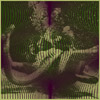
The Lescalleet/Dilloway collaborative LP has less of that sense of fun about it, but it is by no means a dour, pretentious work.While both artists are known for (and employ here) working with cassettes, it is instead their combined use of analog synths that define the two side-long pieces here.
"Shattered Capsules" is all slow, phasing analog waves mingling with one another.Stretched and effected tape sounds pop up here and there, but it is the dying pulses of the synths that command focus for the first half.The second is mostly textural analog creaks and groans, resembling nothing in particular other than captivating sound, closing on a shrill and somewhat unpleasant chirpy analog burst.
The other side of the record, "Burning Nest," goes more for the noise rather than the experiments.Opening with puffs of white noise, it pretty soon goes full bore into a wall of noise.It is not overly harsh or painful though, and instead has that cold, detached feeling of MB's earliest work, without the lo-fi murkiness or overextended reverb.That wall of noise disintegrates throughout the track, eventually replaced by creepy, Psycho-score like tape loops and overdriven loops.
There is a distinctly more serious feel to Grapes and Snakes, and a darker one in comparison to Songs About Nothing, and its not necessarily better or worse, just different.If anything, it exemplifies Lescalleet's flexibility as an artist and composer, going from almost jovial chaos and nuanced structure on the former, and serious, slow burning electronics and harsh noise on the latter.Aaron Dilloway's contribution is not to be ignored either:he has been continually refining and retooling his approach from harsh noise maven into a more refined composer, without losing his sense of experimentation.
Either alone or in this case with Dilloway, Lescalleet has not been a slouch before, but is thriving this year from his live shows and these two high profile releases.While his work might not be for everyone, made abundantly clear with his penchant for tinnitus inducing swells of noise, his work can not be simply pigeon-holed as noise or experimental, unlike a lot of one-dimensional artists working with similar approaches to sound art.
samples:
 
Read More
- Administrator
- Albums and Singles
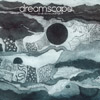 Like many bands, Dreamscape came about as an antecedent to the oblique, often challenging pop of The Cure and The Smiths, and tried to make a name in the then-nascent shoegaze scene. With only one single and one 12" EP in their discography, they have been barely a historical footnote, if that. This disc compiles that EP, an unreleased second EP, and a single incomplete track. Looking back, their sound may not be entirely unique, but it makes for a great combination, and is performed with such earnestness and passion that transcends time and labels.
Like many bands, Dreamscape came about as an antecedent to the oblique, often challenging pop of The Cure and The Smiths, and tried to make a name in the then-nascent shoegaze scene. With only one single and one 12" EP in their discography, they have been barely a historical footnote, if that. This disc compiles that EP, an unreleased second EP, and a single incomplete track. Looking back, their sound may not be entirely unique, but it makes for a great combination, and is performed with such earnestness and passion that transcends time and labels.
Dreamscape was the trio of Scott Purnell, Jamie Gingell (both of whom were later members of Secret Shine) and Rebecca Rawlings on vocals.The first four songs here make up the unreleased Greater Than God EP from 1993, followed by the released Cradle EP (1992), and one demo, the only surviving track from their final sessions.Oddly enough the "Blackflower" 7" referenced in the liner notes does not appear here, potentially for legal reasons, since the other material here was recorded for the La-Di-Da label specifically.
Probably the clearest parallel to draw would be, at least superficially, the Cocteau Twins.This is largely due to the chiming guitars and very obvious drum machine (for Dreamscape, a then-contemporary Alesis SR-16), and use of ethereal female vocals.However, the material for the unreleased Greater Than God EP lacks the excessive reverb in the production, and Rawlings' vocals are not only clear, they are actually understandable, so the connection is tenuous at best."Separate Sense" and "Finally Through" hinge largely on the stiff, unnatural sounding drums, the latter especially focusing on the rhythm track.The former mixes up the dynamics more, balancing quiet, vocal heavy passages with rich, soaring instrumental ones.
The Cradle tracks employ a bit more processing and effects, but in a tasteful and restrained manner."Nine Times to Die" is where the reverb takes more of the focus, enshrouding synth strings and a simple metronomic beat leading to a song that just leans a bit too far into repetition.The longer "Dreamsleep Eternal" does this the right way, mixing the stiff beats and beautiful vocals with dense, complex layers of guitar and keyboards."No More But Thought," the unfinished demo, sadly shows what could have been:starting with the drums right from "Just Like Honey," the final track heads into more aggressive territories, with faster tempo and heavier distortion on the guitar.The sound overall is rawer and harsher, and not due to the condition of the original tapes (there are a few obvious skips and pops to be heard, but nothing problematic), but a different edge the band was working on.Sadly, this song was never finished, nor have any of these other pieces from these sessions survived.
Dreamscape may have just been in the wrong place at the wrong time:the early 1990s in which they were active was a fertile time for the UK alternative scene, and surely many really good bands were lost in the shuffle, spurned for the sake of groups with more style than substance.Dreamscape would not have attained the same level of critical acclaim that My Bloody Valentine or the like did if people had been more aware of them, these recordings are certainly a lot better than many of their contemporaries.The delicate vocals, rich guitars and stiff drum machines are certainly of the era, but they have aged quite well.Hopefully this wider release will at least bring attention to a forgotten band, and with the climate towards '90s alternative nostalgia and shoegaze revivalism, it is perched to do so quite well.
samples:
 
Read More
- Administrator
- Albums and Singles
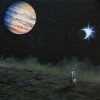 On first blush, it's tempting to characterize Ascent as, for all intents, a brand new Comets on Fire record, or more specifically, as Ben Chasny fronting a Comets jam session. All the Comets guys are backing Chasny here, and the album was recorded live in the studio, like a true collaborative effort. But on further listening, it becomes clear that Ascent is Chasny's baby.
On first blush, it's tempting to characterize Ascent as, for all intents, a brand new Comets on Fire record, or more specifically, as Ben Chasny fronting a Comets jam session. All the Comets guys are backing Chasny here, and the album was recorded live in the studio, like a true collaborative effort. But on further listening, it becomes clear that Ascent is Chasny's baby.
Ascent has a spontaneous, organic quality that reminds me of some of the best live rock albums of decades past—Live Rust, Europe '72, and so forth. There's an ebb and flow to the sequencing that is key to its enjoyability, each track flowing into the next with common lyrical threads. Still, this is far from a Comets reunion: Chasny penned all the music and words himself (save for "Even If You Knew," which goes back roughly a decade to his membership in the Comets line-up). Chasny also takes care of all the lead guitar playing, while the backing instrumentation provides a foundation for him to unhinge and explore musically. (At least half of these tunes simply involve Comets setting up a groove while Chasny lays solo after blistering solo over the top, like an improvised live performance.) Opener "Waswasa" sets the tone early: it is both Ascent's heaviest song, nearly Sabbath-ian in its muscle, and its most propulsive. It doesn't quite unhinge into a sprawling, oscillating wash of sound like Comets' Field Recordings from the Sun, but I get the sense this is by design: less pure chaos, more musical variance, and flat-out better songs.
Musically, the lion's share of Ascent is the antithesis of last year's pastoral, mostly acoustic Asleep on the Floodplain, which is to say, psych guitar heaven—a glorious head trip through Chasny's fiery, unhinged playing. Two of the best songs are actually electric reconfigurations of Six Organs songs that appeared on a couple of Chasny's Holy Mountain records nearly a decade ago, which he has played live in various configurations over the years. "One Thousand Birds" originally closed 2002's Dark Noontide as an Eastern-tinged folk song, complete with its own face-melting guitar solo. On Ascent, the acoustic guitar riff at the song's core is picked up by a bass guitar, its tempo slowed; Chasny's soloing is more patient than in his youth, less a pistol duel than a pummeling 12 rounds in the ring. The real stunner, though, is "Close to the Sky," from 2003's Compathía, which shifts from pure acoustic to full-on psych guitar freakout, with Chasny meditatively intoning, "I never knew anything could exist without you," before his playing rockets into the stratosphere for a breathless five minutes of bliss.
Themes of outer space run through the album lyrically: every song mentions a variance of Earth, sky, sun, wind, dust, storms, blackness, deep space, or the void. Beneath the space analogies, Ascent seems to meditate frequently on loss or death, Chasny's voice passing through filters, reverb and echo, as if beamed in from Jupiter. There is one exception where Chasny and his backing band flip off their amplifiers: "Your Ghost" is his most yearning tune in some years, and one of his most straightforward musically. Chasny's acoustic picking is unadorned, less complex and Eastern-tinged than most anything from Asleep on the Floodplain, and leaves plenty of space for his words to make a gut-punch impression: "I was your voice, I was your light, I was your ghost," he reflects plaintively, repeating varinces on the phrase a few times, building its impact. Ultimately, "Your Ghost" is a three-minute reprieve before the fuzzed-out baseline of "Even If You Knew" charges onto the scene, and just like that, Ascent reverts back to distorted rock 'n' roll bliss.
Samples:
Read More
- Administrator
- Albums and Singles
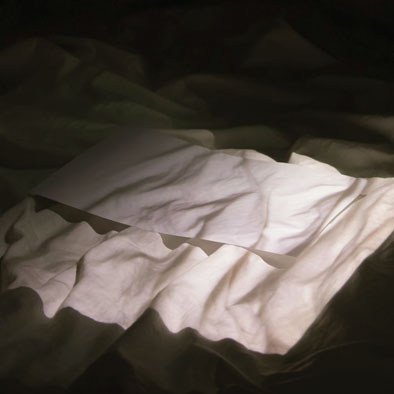 Holy Other has been more or less in constant rotation for me since 2010's perfect We Over single, which makes it kind of surprising that the mysterious Manchester producer is just now getting around to releasing an actual full-length album.  I was a little worried that his very narrow aesthetic (drugged, deteriorated, slow-motion sex music?) would make a longer release drag a bit, but my fears were mostly unfounded. While I do not think the comparatively dark and minimal Held quite hits the heights of some of Holy Other's categorically stellar earlier work, it is still pretty damn good and likely to play an indirect role in many pregnancies.
Holy Other has been more or less in constant rotation for me since 2010's perfect We Over single, which makes it kind of surprising that the mysterious Manchester producer is just now getting around to releasing an actual full-length album.  I was a little worried that his very narrow aesthetic (drugged, deteriorated, slow-motion sex music?) would make a longer release drag a bit, but my fears were mostly unfounded. While I do not think the comparatively dark and minimal Held quite hits the heights of some of Holy Other's categorically stellar earlier work, it is still pretty damn good and likely to play an indirect role in many pregnancies.
Holy Other, along with Balam Acab, has always been one of the most compelling and representative examples of the "Tri-Angle Records aesthetic" (despite their best attempts to diversify): melancholy downtempo electronica with a healthy predilection towards both innovation and hookiness.  Holy Other stands a bit apart though, finding a sexy and sensuous niche a bit more abstract than intermittently excellent label mate How to Dress Well, who veers much closer to "song" territory and actually has lyrics and choruses.  Despite eschewing all such "pop" trappings, Holy Other's vision has always been a surprisingly catchy one: achingly slow, minimal beats beneath thickly throbbing synths and cut-up R&B vocal snatches.  While that is admittedly a fairly trendy thing to be doing right now, Holy Other is large part of the reason that the trend exists in the first place and he executes it much, much better than most (or perhaps he is simply one of the most vicious self-editors around, which would explain his trickling output).
Held does not take many liberties with Holy Other's very successful formula, but it still take more than I would have expected.  In general, it is a bit more restrained and meditative than its predecessor, the With U EP (which was a "break-up album" of sorts).  Part of that may be due to his recent fascination with Gregorian chants (there is a curiously somber, sacred feel to some passages), but I suspect it is more attributable to both an evolution towards subtlety and the demands of sustaining a mood for 35 minutes rather than just writing a killer single or two.  There are some killer singles to be found, of course, as the languorously swelling "W(here)" and the ghostly coda of "U Now" are appropriately infectious, but the emphasis seems to have been much more on creating a brooding and sensuous whole rather than a collection of "hits."
Uncharacteristically, this is one of the rare times where I actually prefer catchy singles to depth and maturity, but only a little–I would unhesitatingly steer anybody unfamiliar Holy Other towards With U over this (unless they are resourceful enough to track down the out-of-print We Over 7").  That is not to say that Held is a disappointment–it is not.  Far from it.  It admittedly lacks some of the immediacy of its predecessors, but there is not weak song in the bunch and Holy Other is at the top of his game with his vocal sample manipulations ("Nothing Here" being pretty much a clinic on how to use cut-up and pitch-shifted vocals movingly).  Of course, addressing the details and subtle changes in style misses the elephant in the room here: Held contains nine solid new songs by a consistently excellent and distinctive artist that had previously only formally released six songs to date.  For me, that constitutes a legitimate event and it was worth the wait.
Samples:
 
Read More
- Administrator
- Albums and Singles
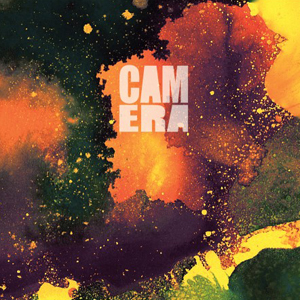 Camera is a young trio which has been stamped with the approval of veterans Michael Rother and Dieter Moebius. With Radiate they expand the abandon and spontaneity of their live performance which have been dubbed "Krautrock Guerilla."
Camera is a young trio which has been stamped with the approval of veterans Michael Rother and Dieter Moebius. With Radiate they expand the abandon and spontaneity of their live performance which have been dubbed "Krautrock Guerilla."
 
The Berlin-based group has a reputation which, up until now, has been based upon their gate-crashing gigs in gentlemen's toilets, subway stations, underpasses, and at award shows. Such appearances are made possible by the speedy set up of a couple of amps, guitars and synthesizer, and a minimal drum kit of snare, floor tom, cymbals, and headless tambourines. Appearances with the aforementioned (pioneering members of Neu, Cluster, and Harmonia) Moebius and Rother hasn't done them any harm either.
Some of the fierce, hypnotic flavor of these non-concert hall shows can easily be viewed on the web and it would be terrific to get off a train or go for a pee and happen upon one of them in real life. Yet, as exciting and intriguing as the web-based clips seem, the sound quality is lacking and I find the sonic mix a little too "democratic," or somewhat cluttered by the percussion. As the saying goes: a little tambourine goes a long way.
The eight pieces on Radiate benefit from the studio setting and show a great improvement in both structure and audio quality. Apparently, after some planning, the group approached these sessions very much like a live performance. The hypnotic elements are not lost and neither is the feeling of improvised surfing on a flow of cosmic sound. As expected, the album is blend of spaciness and propulsion as Camera create both languid atmospheres as on "Villon" and bristling passages laden with fuzzed-out guitar and synth, such as "E-go." All this perhaps coalesces best on "Utopia Is," which includes some wordless voices. There is also some speaking on "Rfid." The track "Soldat," which translates as "Soldier," has a more brutal, depressed, mechanical rhythm in contrast with the lighter piece "Morgen."
The original wave of Krautrock represented an outburst of creative expression derived from the desire of young Germans to be free of the sins of the past and in the process shed the received limits of both national history and musical structure. Camera fits right in with that ethos. Their approach also results in music of a similar tone to that of the somewhat neglected UK band Appliance—another good thing.
Read More
- Administrator
- Albums and Singles
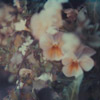 A perfect pairing, Every Hidden Color is Argentina's Federico Durand and the US' Nicholas Szczepanik, both relatively young purveyors of dreamlike ambient music. There are not really any surprises on this two track LP, which is a good thing: it is a carefully constructed work that mixes beautiful, formless tonal drift with rich melodies of subtle construction.
A perfect pairing, Every Hidden Color is Argentina's Federico Durand and the US' Nicholas Szczepanik, both relatively young purveyors of dreamlike ambient music. There are not really any surprises on this two track LP, which is a good thing: it is a carefully constructed work that mixes beautiful, formless tonal drift with rich melodies of subtle construction.
While Szczepanik has been rather prolific in short, diverse pieces (such as his Ante Algo Azul series of 12 3" cds), Durand has stuck mostly to the album length format, on works for Spekk and Own Records.The two side-long pieces that make up Luz then seems to be a perfect middle ground for the two artists to work within.
The introduction to the A side of this work is really the only time that things are harsh:a combination of fuzzy, almost abrasive noises and field recordings, creating a sense of tense urban chaos, which is soon counteracted by the appearance of delicate melodies.These repeating tonal structures weave in and out, becoming the center of attention and enveloping the field recordings into a rich, powerful piece of music.Slowly, almost imperceptibly throughout, these individual notes begin to blend together into a shimmering, amorphous drone that conveys the same lush beauty, but in a less structured manner.Oddly enough, it is on a colder, isolated, almost creepy note that the side ends.
On the other side, more pastoral field recordings are mixed with looped, abstract textures to fascinating effect.Atop this, slightly treated guitar is placed, mostly just delayed, so it retains the instrument’s natural sound.The combination of conventional sounding guitar and processed, textural ambience works well together, and eventually the whole thing is bolstered by what sounds like layers of droning synthesizers, ending the album on a drifting, billowy passage.
Throughout Luz, a sense of delicate, but powerful beauty emanates from the layers of electronic sound and cautious melodies.An unending stream of tone flows like a slow river, carrying glorious textures with it.While there is an admirable simplicity to the way the album is constructed, it is by no means sparse or skeletal, it has just enough going on to be captivating, while still remaining meditative and calm.Durand and Szczepanik compliment each other perfectly, and the result is a beautiful piece of sonic experimentation.
samples:
 
Read More
- Administrator
- Albums and Singles
 Robert Henke's Monolake delivers the second full length album within ayear. "Cinemascope" couples 5 previously released vinyl tracks with 5others for a 66 minute continuation of Monolake's modus operandi:majestic, minimized, computerized groove. A glacial serenity isever-present, more so in terms of atmosphere than emotion, as soundsalchemically mix and tracks unfold and evolve. The shorter ones, overhalf the album, are very rhythmic and dance floor ready. "Ping" and"Cut" in particular neatly toss about bass and beats as though in ametallic tumbler. I'm duly impressed. But it's the lengthier andmellower, more environmental epics that are most impressive. "Bicom"binds dry iced hiccups to a mildly hip hop loop. "Ionized" isadequately named, gradually gaining and losing electrons of chargedsound over 11+ minutes. "Alpenrausch", commissioned for Switzerland'scultural symposium Migros Kulturprozent, cuts and pastes sampledvocalizations with glass bells. Monolake albums usually end with agorgeous ambient minded finale and "Indigo" is no exception as deepblue liquid drips and gathers amongst gently percolating bass. Verynice. Another new album is apparently due out early next year.
Robert Henke's Monolake delivers the second full length album within ayear. "Cinemascope" couples 5 previously released vinyl tracks with 5others for a 66 minute continuation of Monolake's modus operandi:majestic, minimized, computerized groove. A glacial serenity isever-present, more so in terms of atmosphere than emotion, as soundsalchemically mix and tracks unfold and evolve. The shorter ones, overhalf the album, are very rhythmic and dance floor ready. "Ping" and"Cut" in particular neatly toss about bass and beats as though in ametallic tumbler. I'm duly impressed. But it's the lengthier andmellower, more environmental epics that are most impressive. "Bicom"binds dry iced hiccups to a mildly hip hop loop. "Ionized" isadequately named, gradually gaining and losing electrons of chargedsound over 11+ minutes. "Alpenrausch", commissioned for Switzerland'scultural symposium Migros Kulturprozent, cuts and pastes sampledvocalizations with glass bells. Monolake albums usually end with agorgeous ambient minded finale and "Indigo" is no exception as deepblue liquid drips and gathers amongst gently percolating bass. Verynice. Another new album is apparently due out early next year.
samples:
Read More
- Administrator
- Albums and Singles
 Having previously pumped up the sounds of surgically enhancedflatulence for a Hot Air 7", the diagnostic sound recording services ofDoctors Stahlgren and Ferguson were in demand. Their biggest job todate was the big Omag Magnetizing bank scam. They were hired to recordall the whistles, creaks, rattles, wirrings and splutterings made bythe printing, magnetizing, sorting and reading processes that digestcheques travelling through the swollen world banking gut. Their bigmoney diagnosis remains a mystery, but some of the magnetic printingsounds have been hacked, chopped, thoughtfully rearranged and evengiven the odd punchline here and there by their creator Matt Wand. Forthis dose of Hot Air he's been wearing his electroacoustic hat. Shortspells of calm droning are followed by quick collaged crescendos andwhilst it all seems quite condensed, there's nothing to stop a secondlisten. Perhaps the beauty of the 3" CD format is brevity, but I couldhappily listen to more of this, as Matt does electroacoustic laptoppingwell and leaps and hobbles adventurously into more abstractsoundscaping than on the comparatively safe but cheerful Ungu Buntu 3".I'm particularly floored by the big mangled mash up peaks of the 'DeadThixotropic Duct Roller', but can just as happily dust the speakersdown with the eerie hum wobbling of 'Anti-set-off Powder'. Now wheredid I leave that 'Shrinking Disinclination Loop'?
Having previously pumped up the sounds of surgically enhancedflatulence for a Hot Air 7", the diagnostic sound recording services ofDoctors Stahlgren and Ferguson were in demand. Their biggest job todate was the big Omag Magnetizing bank scam. They were hired to recordall the whistles, creaks, rattles, wirrings and splutterings made bythe printing, magnetizing, sorting and reading processes that digestcheques travelling through the swollen world banking gut. Their bigmoney diagnosis remains a mystery, but some of the magnetic printingsounds have been hacked, chopped, thoughtfully rearranged and evengiven the odd punchline here and there by their creator Matt Wand. Forthis dose of Hot Air he's been wearing his electroacoustic hat. Shortspells of calm droning are followed by quick collaged crescendos andwhilst it all seems quite condensed, there's nothing to stop a secondlisten. Perhaps the beauty of the 3" CD format is brevity, but I couldhappily listen to more of this, as Matt does electroacoustic laptoppingwell and leaps and hobbles adventurously into more abstractsoundscaping than on the comparatively safe but cheerful Ungu Buntu 3".I'm particularly floored by the big mangled mash up peaks of the 'DeadThixotropic Duct Roller', but can just as happily dust the speakersdown with the eerie hum wobbling of 'Anti-set-off Powder'. Now wheredid I leave that 'Shrinking Disinclination Loop'?
samples:
Read More
- Administrator
- Albums and Singles
 This little 3" CD from the Hot Air label, with it's quaint pictures ofIndonesian women wearing old hats of the fifties, has been caughtmasquerading as a reissue of a rare tape classic which was supposedlyoriginally only released in South East Asia on the Kesenian label in1982. If the sleeve notes are to be believed, which they're not, thenObeng Ungu and Jalan Buntu not only paid musical tribute to the bravehat wearing women of Sumatra, who risked internment and publicexecution for embracing fashions from outside their culture, but werethemselves the victims of cultural reappropriation. Their 1981recordings of sessions at the Daging Dingin Candi, beating theirgambangs and rubbing their metallophones, were ahead of their time.They were so ahead of their time that their odd combo which soundedlike it had it's pot gongs, cuks, caks and sekelengs mixed down on alaptop, that Salford duo Stock, Hausen & Walkman ripped them offwilly nilly for their "Organ Transplants". Well, old John Peel of RadioOne was fooled. Admittedly, it probably doesn't take much to fool MrPeel, but surely the picture of the 'Public parading of condemned hatwearers' ought to give the game away if the music itself didn't?Strangely Matt Wand, who has been indulging in works of fiction, hashad emails from people with faulty memories congratulating him onreissuing such a mythic recording. I told Matt that the twelve shorttracks with silly long titles made me think of truncated "OrganTransplants" done with ethnic percussion and tropical croaking samples.Matt laughed and told me to fuck off.
This little 3" CD from the Hot Air label, with it's quaint pictures ofIndonesian women wearing old hats of the fifties, has been caughtmasquerading as a reissue of a rare tape classic which was supposedlyoriginally only released in South East Asia on the Kesenian label in1982. If the sleeve notes are to be believed, which they're not, thenObeng Ungu and Jalan Buntu not only paid musical tribute to the bravehat wearing women of Sumatra, who risked internment and publicexecution for embracing fashions from outside their culture, but werethemselves the victims of cultural reappropriation. Their 1981recordings of sessions at the Daging Dingin Candi, beating theirgambangs and rubbing their metallophones, were ahead of their time.They were so ahead of their time that their odd combo which soundedlike it had it's pot gongs, cuks, caks and sekelengs mixed down on alaptop, that Salford duo Stock, Hausen & Walkman ripped them offwilly nilly for their "Organ Transplants". Well, old John Peel of RadioOne was fooled. Admittedly, it probably doesn't take much to fool MrPeel, but surely the picture of the 'Public parading of condemned hatwearers' ought to give the game away if the music itself didn't?Strangely Matt Wand, who has been indulging in works of fiction, hashad emails from people with faulty memories congratulating him onreissuing such a mythic recording. I told Matt that the twelve shorttracks with silly long titles made me think of truncated "OrganTransplants" done with ethnic percussion and tropical croaking samples.Matt laughed and told me to fuck off.
samples:
Read More
- Administrator
- Albums and Singles
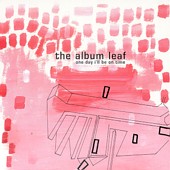 It's rather difficult to believe Jimmy LaValle of the popular hardcoreoutfits Swing Kids, The Locust and GoGoGo Airheart is the same Jimmy ofTristeza or the elegant and introspective project, The Album Leaf. Inany case, this follow-up to the successful 'An Orchestrated Rise toFall' further focuses the stylistic intentions of its predecessor. 'OneDay I'll Be On Time' captures the haunting yet simple instrumentalbeauty found in much of the work of Brian Eno on 'Another Green World'or 'Before and After Science' (the songs "Wet the Day" and "The Sailor"being distinctively Eno-esque, particularly as regards LaValle'skeyboard work). From sparse, hypnotic electric piano melodies todelicate (but never flowery), ambient guitar pieces like "Storyboard"(not to mention those songs which combine the best of both theseworlds, such as "The MP"), the album is replete with a sincerity thatis so lacking in many otherwise talented artists' work. However,although it is sparse, this is not to say it lacks depth. LaValle'ssongwriting seems crafted with the utmost care. He plays nearly all thevast array of instruments, as well as doing the bulk of the recordinghimself. It is likely that these elements lend 'One Day' its intimacy.In a match that is hardly surprising, The Album Leaf (which featuredLaValle with assistance from fellow members of Tristeza) has justcompleted a recent tour opening for like-minded moody songsters SigurRÑs.
It's rather difficult to believe Jimmy LaValle of the popular hardcoreoutfits Swing Kids, The Locust and GoGoGo Airheart is the same Jimmy ofTristeza or the elegant and introspective project, The Album Leaf. Inany case, this follow-up to the successful 'An Orchestrated Rise toFall' further focuses the stylistic intentions of its predecessor. 'OneDay I'll Be On Time' captures the haunting yet simple instrumentalbeauty found in much of the work of Brian Eno on 'Another Green World'or 'Before and After Science' (the songs "Wet the Day" and "The Sailor"being distinctively Eno-esque, particularly as regards LaValle'skeyboard work). From sparse, hypnotic electric piano melodies todelicate (but never flowery), ambient guitar pieces like "Storyboard"(not to mention those songs which combine the best of both theseworlds, such as "The MP"), the album is replete with a sincerity thatis so lacking in many otherwise talented artists' work. However,although it is sparse, this is not to say it lacks depth. LaValle'ssongwriting seems crafted with the utmost care. He plays nearly all thevast array of instruments, as well as doing the bulk of the recordinghimself. It is likely that these elements lend 'One Day' its intimacy.In a match that is hardly surprising, The Album Leaf (which featuredLaValle with assistance from fellow members of Tristeza) has justcompleted a recent tour opening for like-minded moody songsters SigurRÑs.
samples:
Read More
- Administrator
- Albums and Singles
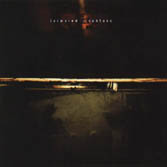 I've mostly lost faith in the whole Ant-Zen/Hands thing. Recently,though, two albums were released that nearly restored my entire faithin the style of music as a whole: Azure Skies (reviewed last week) andTarmvred's "Subfusc."
I've mostly lost faith in the whole Ant-Zen/Hands thing. Recently,though, two albums were released that nearly restored my entire faithin the style of music as a whole: Azure Skies (reviewed last week) andTarmvred's "Subfusc."Right from the start, "Subfusc" appealed to my tastes - most of thesongs are quite long (I'm a long-song freak). But what really sets itapart is the fact that it's written really damned well. You will findno contrived distorted dancefloor songs here: the beats are there, andin full force, but they never slip into the four-on-the-floor trap andthey will never make you think you're listening to Noisex.
Which brings me to the point that Tarmvred sounds a lot like an evolvedWinterk¹lte. The structure and approach is kind of the same, but I dareto say that Tarmvred pulls it off better... Nor is Tarmvred afraid tobreak out the Sidstation, and drop in a phat old-skool C64 melody atthe end of track one. The whole album has little cool bits like thesein it, that break away from the cliches and make wonderful use of new,interesting sounds.
The album gets slightly redundant at points (some of the beginningparts of the longer songs are unnecessary)... but this is still awonderful album, especially for anyone who was listening to Ant-Zen afew years ago and then got tired of the club music crap. But hey, theclub kids should like it too: this is something for everyone. Get it.
samples:
Read More


